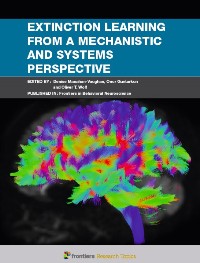DFG Research Unit 1581
Project Profile P7
Neural Mechanisms of Learning and Extinction in Visceral Pain
Although the ability to associate aversive visceral signals with specific environmental or internal cues is of highly adaptive value, the potential clinical relevance of such associative learning and extinction phenomena has thus far received little attention. It is at present unclear whether alterations in learning and/or extinction and renewal contribute to the pathophysiology of functional gastrointestinal disorders. To date only one single imaging study exists on visceral associate learning and extinction. Therefore, we are conducting a series of conditioning studies in which the conditioned brain response to visceral pain and its anticipation is analyzed with fMRI in combination with valence, contingency and arousal ratings as behavioral measures and assessment of skin conductance response (SCR), salivary cortisol and alpha-amylase concentrations as peripheral measures of the sympathetic and hypothalamic-pituitary-adrenal axis activity.
We seek to clarify the roles of different brain regions in visceral aversive pain conditioning during four stages:
- Acquisition
- Extinction
- Reinstatement
- Renewal
We are especially interested in neural structures and networks mediating learning and which were relevant for extinction and renewal in visceral aversive conditioning:
- the prefrontal cortex, which may be involved in extinction retrieval and renewal
- the hippocampus, which could contribute to context-dependent learning
- the anterior cingulate cortex, the somatosensory cortex and the insula for the storage of the memory for the initial excitatory conditioning and its subsequent extinction
Method
We investigate neuronal, peripheral and behavioral responses during a novel aversive visceral conditioning paradigm using a combination of
- fMRI (BOLD Signal)
- Skin conductance response (SCR),heart rate, respiration rate
- Behavioral measures (valence, contingency, arousal)
- Salivary cortisol and alpha amylase Subjects: patients with irritable bowel syndrome (IBS) and healthy controls
Cooperation within the Research Unit:
- Project P6: Methodological and content-related similarities. The cooperation focuses on sharing and developing fMRI analysis strategies in order to assess the brain networks mediating the neural response to CRs during learning, extinction and renewal. P6 study contextual extinction by modulating attentional resources by bottom-up and top-down methods, which may also play a role in visceral pain conditioning
- Project P8: Methodological and content-related similarities. P8 is important given their focus on cerrebellar functions, which may also play an important role in visceral pain conditioning, and the methodology using 7Tesla functional imaging techniques may constitute an interesting perspective for follow-up studies assessing pro- and anti-nociceptive midbrain and brainstem activation during learning and renewal in visceral pain conditioning.
- Project P5: Content-related similarities. P5 investigate the role of stress or stress mediators in fear conditioning. This research field is highly interesting and valuable given the probable role of stress and anxiety in altered pain responses in IBS.
Contact: In case of any questions regarding P7 please contact Prof. Dr. Sigrid Elsenbruch: sigrid.elsenbruch@uk-essen.de






 Don't forget...
Don't forget...
